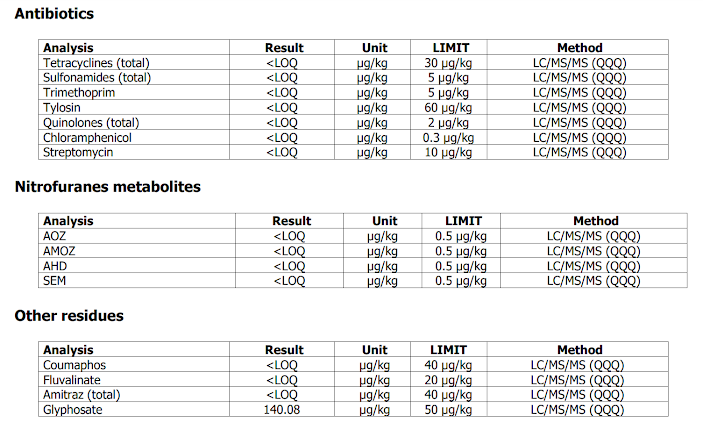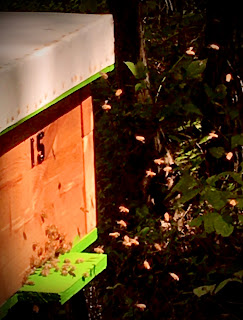Soldiers and Plowshares, Farmers and Swords
In the Bible, in the Old Testament, a body of scripture held sacred by Jews, Christians, and Muslims, there are two verses that bring to mind the transition we are witnessing here today. Today’s transition really began on July 9, 2011, when South Sudan became the world’s newest independent country. However, there was an opposite transition some fifty years ago, before most of us here today were even born, when many South Sudanese began to take up arms to fight for liberation. Let us consider these two transitions and what they mean to us today.
The first Bible verse reflects what many of your forefathers did in the face of oppression. In the words of the Prophet Joel, “Beat your plowshares into swords and your pruning hooks into spears! Let the weakling say, “I am strong!” Many men and women across the south, including many of your fathers and grandfathers, set down their tools and left their farms to take up the struggle in the bush. We are all here today because of their sacrifices.
But the second verse that comes to mind speaks to the transition we are seeing today. In this transition, we are seeing soldiers set down their weapons and return to the farm. That transition today is not from peace to war, but rather from war to peace. And the Prophet Isaiah speaks to this day in his immortal words, “They will beat their swords into plowshares and their spears into pruning hooks. Nation will not take up sword against nation, nor will they train for war anymore.”
Both of these great Prophets of the Almighty God speak of the transition from war to peace, but do so in the terms of the people who best symbolize those terms. The farmer needs peace. A successful farmer who can raise more food than his family needs and help to feed his country is the hero of every nation. It is on the fruits of his labor, by the sweat of his brow, that a country achieves greatness and civilization is built. For if he fails, the country fails. A country that cannot feed itself will never be secure and will always lack confidence in its ability to achieve greatness and even to survive.
In my own country, we learn at an early age about the heroic Minutemen of the American Revolution. These were men, mostly farmers, who on a minute’s notice would drop their tools and grab their guns to go and defend their homes and villages. But as soon as the fight was over, we wanted them to go back to their farms and shops because that was where they were needed to feed and build a growing nation.
Today, we are here to celebrate the graduation of the first group of SPLA soldiers who are making that transition from sword to plowshare. They are not leaving the Army, but rather are learning new skills that will help the SPLA and their fellow soldiers to develop self-sufficiency in food through an Agriculture Battalion that will one day work fully independently without international support. Many of those soldiers will eventually leave the SPLA, but when they do, they will simply transition to serving their country in another way and be Farmer-Patriots instead of Soldier-Patriots. This transition is not only very practical, but it is also very symbolic as it shows the world that South Sudan and the SPLA are on the path to peace and not war.
The transition you are making is especially meaningful to me, personally. Like you, I will also transition to a new career as a farmer after I leave here next year. My second career after diplomacy will be farming and I will move back to my farm in the States and take up organic farming in the coming year. My time in South Sudan has been especially interesting for me as it has allowed me to see the many traditional, but very smart, ways in which your farmers are working and to learn about many organic and sustainable farming techniques in use across Africa. I have found it especially interesting that what we in America see as new and revolutionary technologies are, in fact, what you have been doing here for centuries. Indeed, we have much to learn from each other!
The United States is honored to be working with you in this effort. Our partner in this effort is the Borlaug Institute, a part of Texas A&M University, which is one of the top agriculture training centers in the world. Texas A&M University, by the way, is one of America’s top universities and is the sixth largest university in America – and that is out of more than four thousand colleges and universities in the country! In other words, you have as your partners in this effort the best that America can offer and we are proud and honored to support it.
Among the 60 soldiers who began this training in June, thirteen are “wounded heroes” who are not yet ready to stop serving the people of South Sudan. These dedicated soldier-students have learned several key skills for modern-day farming, including manual and mechanical seed sowing, pest and weed control, transplanting vegetable crops, and repairing and maintaining tractors. In order to ensure that the students studied and worked hard, I understand they had to live off the crops they produced during the course!
The Borlaug Institute will now take the best 15 to 20 students from this year’s program and they will become trainers for the next crop of students in the coming year. The others will continue to learn more advanced skills in tractor driving and maintenance and other farming skills and they will then go out to the various farms run by the Military Economic Corporation to put their new skills to work. This pattern will be repeated with three classes of about 200 students total over a three-year period.
At the same time the training is under way, the Borlaug Institute will develop a multi-crop pilot farm of about 140 hectares in size. This will be a demonstration farm used to advance the skills of these soldier-farmers and to provide on-the-job training for the many students who will train under their SPLA teachers for years to come.
In the United States, we are also working hard to help many of our soldiers learn new skills as farmers and to take up farming after they complete their military careers. As one soldier who was badly wounded in Iraq and endured long therapy in recovery described it, “One thing I’ve noticed about agriculture is that you become a creator rather than a destroyer.” Another American veteran said he learned how to face death in Iraq, but in farming, there was life all around. Many of our wounded heroes have found that the best therapy for their bodies, minds, and souls came simply from working outside, being around animals, and working in the peaceful, quiet atmosphere of a farm. Truly, for many of these wounded heroes, farming has given them a new life and a new way to serve their country and fellow Americans.
In the same manner, you will now start to serve South Sudan in a new way. As you learn farming, and perhaps someday leave the Army to rejoin your family and be a farmer full time, you will continue to be a patriot by helping South Sudan achieve its goals of food security and independence. Oil production holds great promise for helping this country in its development goals, but it is a limited resource that will one day end. Agriculture, however, will help South Sudan’s development forever, if done right. Good farming and good farmers will improve the land and increase the country’s agricultural wealth and it is a resource that will never run out.
You fought for your country and demonstrated your love of South Sudan and its people as a soldier. Now as soldier-farmers, you are fighting for your country in a new way and the work you are doing will someday make the SPLA completely self-sufficient in food production. Then you may well transition again to become civilian farmers who will contribute to South Sudan’s economic development and security by reducing its dependence on foreign donors and international support. Whether soldier or farmer, you have shown that you can turn your plowshare into a sword and your sword into a plowshare. You are truly ready to serve your country in every way.
To each of you graduating today, I extend to you my heartfelt congratulations on behalf of the American Embassy and the American people. You should be very proud of what you have accomplished and we look forward to continuing our support of the SPLA in this and other areas in the months and years ahead.
Thank you!
Delivered at the graduation ceremony of the first class of 60 soldiers of the (South) Sudan People's Liberation Army from the Borlaug Institute training program in South Sudan on December 7, 2012.

